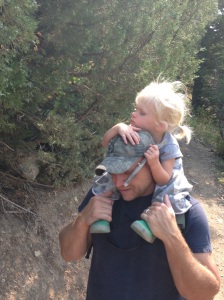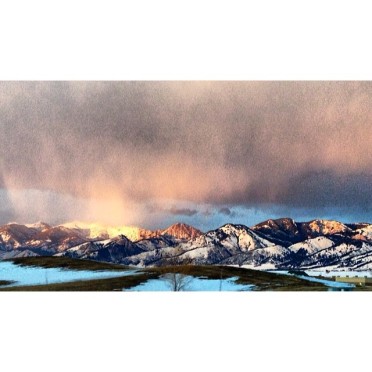Do you rulers indeed speak justly? Do you judge the people with equity? No, in you heart you devise injustice, and your hands mete out violence on the earth.
Even from birth the wicked go astray; from the womb they are wayward, spreading lies. Their venom is like the venom of the cobra that has stopped its ears, that will not heed the tune of the charmer, however skillful the enchanter may be.
Break the teeth in their mouths, O God; Lord, tear out the fangs of those lions! Let them vanish like water that flows away; when they draw the bow, let their arrows fall short. May they be like a slug that melts away as it moves along, like a stillborn child that never sees the sun.
Before your pots can feel the heat of the thorns-whether they be green or dry-the wicked will be swept away. The righteous will be glad when they are avenged, when they dip their feet in the blood of the wicked. Then people will say, “Surely the righteous still are rewarded; surely there is a God who judges the earth.”
Hermeneutical Categories
Did it work? Did I get you to read my post by using a tricky word like imprecation? I was going to use, “You’ll never believe what happens when this guy calls down God’s Judgment on his neighbors!” but didn’t really feel like I could deliver on that headline. However, I did use imprecation and hermeneutics (see above) so maybe you’re interested, maybe your not, but try to stick around for a minute as I address something that I think that we can all identify with.
How do you read the Bible? I saw a post recently on Facebook where someone had put up a chart of a particular hermeneutic. Their hermeneutic (interpretation of scripture) was to take an idea or a particular situation in life that they wished were true and then find a way to justify it by what the Bible says, or rather, what they think that the Bible says. The chart concluded that anyone who would read the Bible and still believe that homosexuality is a sin can only fall into the category of bigoted and closed minded.
This person seemed to send the message that they were not open to reading the Bible any differently than the ideas that they had already formulated. From the conclusions that the chart came to, it was evident that if you didn’t agree with them, then you fit into a certain category or type of person. I wanted to respond with, “Wait a minute, is this fair? Where is your evidence? How is this different than the worst of internet memes?” But then I realized that as soon as I say something against this diagram, I fit instantly into the categories that they had created for someone like me. To be fair, I wish that I could talk to this person and find out more before I fit them into a category, which I realize I’m dangerously close to doing.
When we make a practice of fitting people into categories, it’s not surprising that we would do this to God as well. But this isn’t a liberal or conservative problem, it’s a human one. We take what we wish were true about the world based on our desires or the desires of someone close to us and then find a way to put God into a category that agrees with our thinking. This is a terrible hermeneutic, of which I am guilty. God’s word is meant to shape us instead of us shaping God’s word.
But what if it’s a hard passage or what if we disagree with what God is teaching us? Instead of assuming an answer here (since I’ve already assumed the question) it might be helpful to address a posture we ought to pursue before we ever come to the scriptures.
We aren’t God.
You, me, us, we aren’t God. No matter how we feel about the world, no matter how we “wish” things could be (I wish that I could eat a carton of moose tracks without consequence but that’s just not how the universe works) we aren’t God. We don’t get to decide what is right, just, holy, pure, true and what is sinful. God does. The only way that we’re ever to become fully free in our humanity is to become fully bound to our Creator.
Imprecca…what?
My goal here isn’t to address sexual sin or to debate who is on the right side of the issue of the right to marry. My goal is to help us to see how it is a tragic mistake to make light of God’s word and not take the time or do the homework of understanding what he is communicating to us and how he wants us to live and flourish.
There are passages all over scripture that carry the weight of imprecatory Psalms, or Psalms of judgment. However, it is here in the Psalter that we see explicit sentiments or postures of judgment and cursing. Jesus said to love your enemies and to pray for those who persecute you. How do we reconcile that with prayers of judgment (imprecatory prayer) in the Psalms?
“Break the teeth in their mouth, O God.”
It is unfair to look at a passage like Psalm 58 and simply pass over it quickly or explain it away by claiming that the Old Testament is different than the New. We don’t get to ignore or explain away the parts of scripture that we disagree with. There’s hard work to do.
Where are you going with this?
The Psalms run the full spectrum of human emotions. They are filled with worship and praise, joy and celebration as well as tears, death, sadness and submission. They are the book of worship that Jesus was intimately familiar with and from which he quoted more than any other. The Psalms are necessary today for Christian worship. They are to be understood communally within the people of God and they teach us all of the beauty of the mercy, love and judgment of our God. As with all of Scripture we don’t get to ignore these prayers, we don’t get to re-translate them, we don’t get to dismiss them as hateful and not from God, we don’t get to deny their inspiration and they’re not to be read in contrast to a New Testament ethic.
Can we live a dedicated Christian life of love and mercy and prayer for our enemies AND pray the Psalms with understanding that God has judged and will judge sin? Over the next few posts I want to explore the beauty of worship found in imprecations against the wicked, what kind of posture the Christian should have when we pray these prayers and how imprecatory Psalms fit beautifully into God’s story of love for his people.
Soli Deo Gloria

 while being a sinner meant, well, just that, being a sinner. But as I grow and understand God’s story better I now see that the problem for many of us is not that the world isn’t black and white but that we can’t fit ourselves into finished categories of what we wish we were or could potentially be. Typically, we don’t like contradiction. We don’t like to think about what we wish we were and then act another way. We don’t like the fact that we would love to do what our hearts love to do, but at the same time make our hearts want what we know that we should do (ummm, ok, if you got that then just wink twice and move on). When I look at a donut, I want it! But what I would love is to make my heart not want it so that I don’t actually eat it. But alas, I eat it. Again and again and again. Confession As I grow to understand Hebrews 10:14 better, “For by one sacrifice he has made perfect forever those who are being made holy.” I am thankful for the antinomy, the seemingly contradictions of life. As Paul says in Romans 7, “I don’t do what I so desperately want to do!” Ever feel this way? Grasping the gospel is being ok with confession. Grasping the gospel is being ok with not being ok. That doesn’t mean that we get to act like the fool who says, “there is no God.” but it does mean that we are thankful that the essence of grace is that we are given what we so desperately can’t get on our own. For there is now no condemnation for those who are in Christ Jesus! Salvation for a Reason In verse 6 here in Psalm 53 we are reminded that we are saved for a reason. “Oh that salvation for Israel would come from Zion! When God restores his people…” We are both, made perfect and are being made perfect. Our salvation is a gift which restores us to God, by the blood of Christ and this gift of life also works to perfect us even now as we are in the body. We grow and learn and understand that there are times of desperation and unbelief and there are times of great joy and obedience knowing that salvation has come from Zion! We are not overwhelmed with dread because, though yet we are fools, and turn from God, corrupt and vile, we are restored! What grace and beauty comes from this gospel of salvation for those who are in Christ! We don’t have to look at our lives as if we are accepted by God one day and then not the next. The contradiction we feel is good because what it means is that we care about and confess our unbelief and rebellion. As we live in the body, what we do in the body matters and has consequences, but we remember that Christ has redeemed us! Salvation has come from Zion and we are restored and are being restored. We are faithless, yet full of faith. We are broken, yet not broke. We are sinners but not lost to sin. Where sin abounds,
while being a sinner meant, well, just that, being a sinner. But as I grow and understand God’s story better I now see that the problem for many of us is not that the world isn’t black and white but that we can’t fit ourselves into finished categories of what we wish we were or could potentially be. Typically, we don’t like contradiction. We don’t like to think about what we wish we were and then act another way. We don’t like the fact that we would love to do what our hearts love to do, but at the same time make our hearts want what we know that we should do (ummm, ok, if you got that then just wink twice and move on). When I look at a donut, I want it! But what I would love is to make my heart not want it so that I don’t actually eat it. But alas, I eat it. Again and again and again. Confession As I grow to understand Hebrews 10:14 better, “For by one sacrifice he has made perfect forever those who are being made holy.” I am thankful for the antinomy, the seemingly contradictions of life. As Paul says in Romans 7, “I don’t do what I so desperately want to do!” Ever feel this way? Grasping the gospel is being ok with confession. Grasping the gospel is being ok with not being ok. That doesn’t mean that we get to act like the fool who says, “there is no God.” but it does mean that we are thankful that the essence of grace is that we are given what we so desperately can’t get on our own. For there is now no condemnation for those who are in Christ Jesus! Salvation for a Reason In verse 6 here in Psalm 53 we are reminded that we are saved for a reason. “Oh that salvation for Israel would come from Zion! When God restores his people…” We are both, made perfect and are being made perfect. Our salvation is a gift which restores us to God, by the blood of Christ and this gift of life also works to perfect us even now as we are in the body. We grow and learn and understand that there are times of desperation and unbelief and there are times of great joy and obedience knowing that salvation has come from Zion! We are not overwhelmed with dread because, though yet we are fools, and turn from God, corrupt and vile, we are restored! What grace and beauty comes from this gospel of salvation for those who are in Christ! We don’t have to look at our lives as if we are accepted by God one day and then not the next. The contradiction we feel is good because what it means is that we care about and confess our unbelief and rebellion. As we live in the body, what we do in the body matters and has consequences, but we remember that Christ has redeemed us! Salvation has come from Zion and we are restored and are being restored. We are faithless, yet full of faith. We are broken, yet not broke. We are sinners but not lost to sin. Where sin abounds, 
 the way that mom and dad do. Many of us have desires and things that we wish would happen. We all like to have that sense of completion and the fulfillment of accomplishment.
the way that mom and dad do. Many of us have desires and things that we wish would happen. We all like to have that sense of completion and the fulfillment of accomplishment.
 lukewarm. But worse than not liking to sing the church hymns, (I’d rather have sung Bon Jovi…hey Bon Jovi even lived on a prayer…am I right?…ok I’ll stop) I didn’t feel like God liked me. I knew that I had sin, but I just couldn’t get it right! Wasn’t that the point of being a Christian? Getting it right so that God would now at least like me?
lukewarm. But worse than not liking to sing the church hymns, (I’d rather have sung Bon Jovi…hey Bon Jovi even lived on a prayer…am I right?…ok I’ll stop) I didn’t feel like God liked me. I knew that I had sin, but I just couldn’t get it right! Wasn’t that the point of being a Christian? Getting it right so that God would now at least like me?